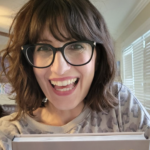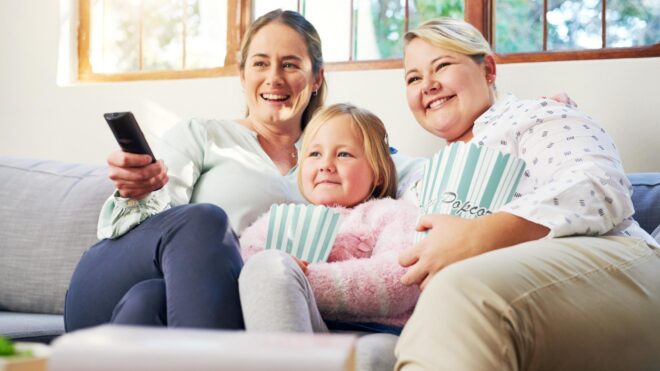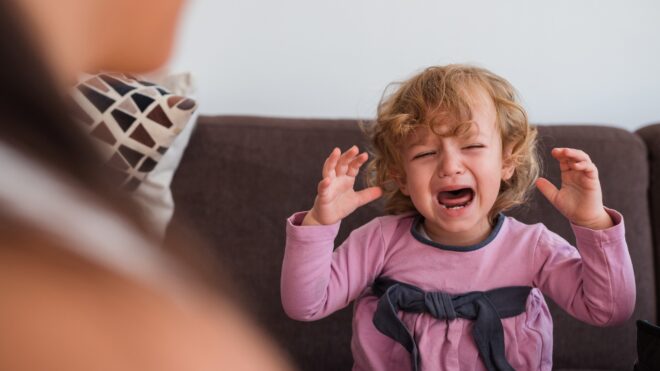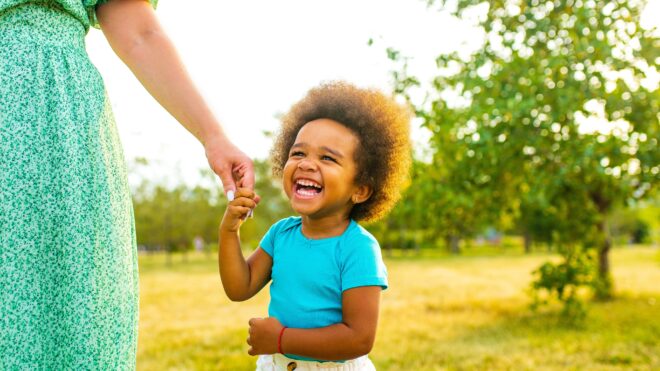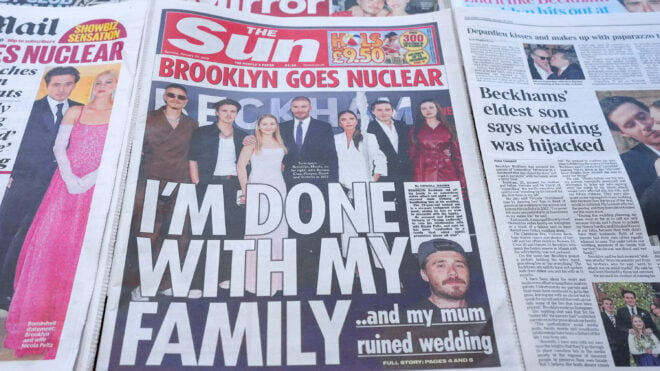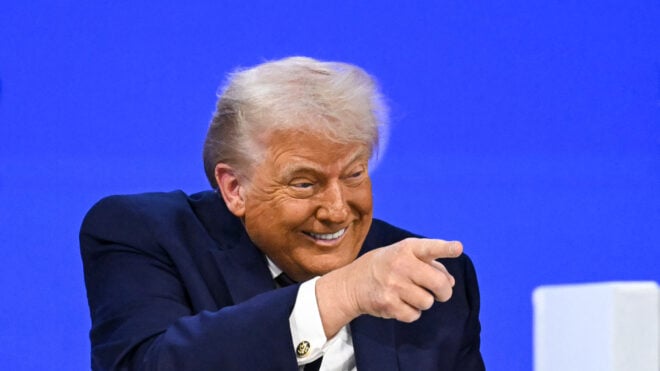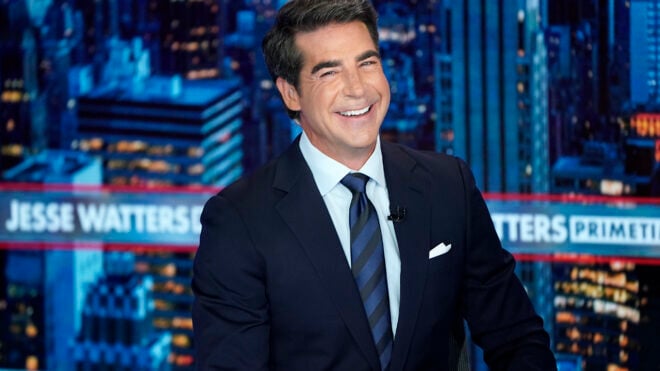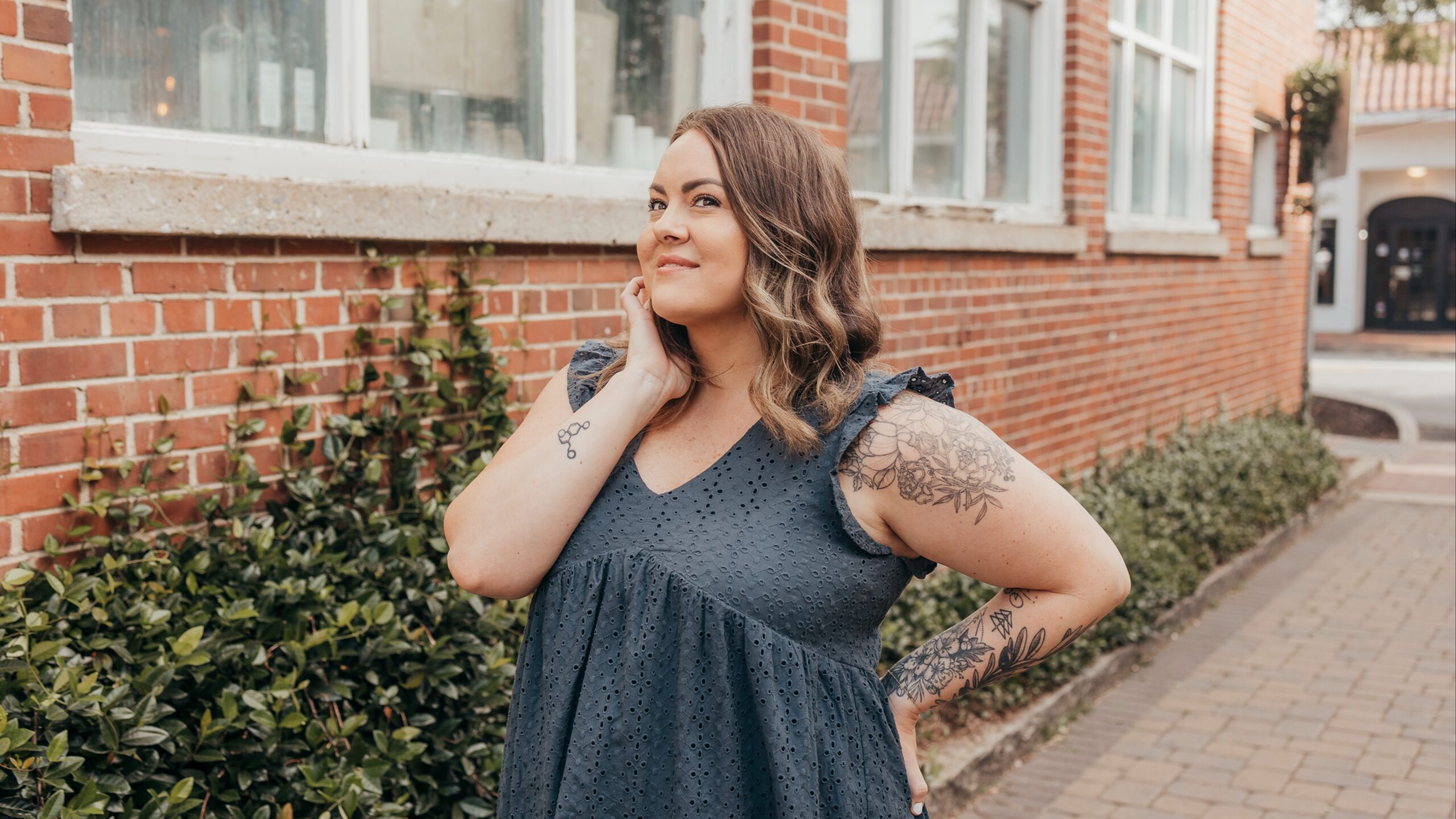
Author, blogger, and influencer Katie Crenshaw prides herself on authenticity, so when her platforms were no longer reflecting her offline life, it was time to come clean — about her marriage, sexuality, and everything else that was laying a burden on her chest. Opening up to her 77.8K Instagram followers has allowed her to life her truth and advocate for others who are divorced, queer, or struggling with body positivity, motherhood, and mental health.
“I was really starting to feel inauthentic,” Crenshaw, a mom of three, tells LittleThings. “All of these really heavy things and conversations were happening behind the scenes, and my platform has always existed to put all of that on display. For the first time, I was not sharing openly, and my online persona looked very business as usual, when in reality it was anything but. That was the hardest time as an influencer for me to differentiate between what was necessary to share or keep close to the vest.”
More from LittleThings: 5 Ways To Become A Queer Ally That Might Not Seem So Obvious
First, Crenshaw revealed the news of her divorce.
“We began to seriously discuss separating in the future in the early part of quarantine,” says Crenshaw. “That journey was very difficult for me because I loved my husband very much. We made a pretty good team, we were best friends, and we’d been together a long time. It was not easy. Sometimes it’s not about needing to escape a ‘bad’ situation, it is more about simply wanting more/better for both of you. We didn’t want to exist as roommates forever. The divorce was not because of my sexuality, but my realizations and acceptance of that happened pretty simultaneously. I came out to my husband after we had already discussed separating and was met with acceptance and support. I didn’t expect any different from him. Six months later I began sharing it all on social media. It was cathartic and freeing and reached a lot of women who felt similarly. Which is always validating to my purpose on the internet.”
Of the divorce process, Crenshaw admits, “It was logistically and emotionally harder and longer and more complicated than I thought it would be, even though we were totally amicable and pleasant as a couple. Society tells you that if you are just OK in your marriage and no one is essentially abusing you or cheating on you that you should stay put. It was hard to get out from under that guilt and shame at times. Not to mention once it was public I had the occasional stranger tell me I was ruining my life and my kids’ lives, which was lovely. Also, even though I have been divorced before, I’ve never been divorced with three children, and all of the logistics are complicated and emotionally draining, and everything just takes a really long time to figure out and get into a routine.”
Her new normal includes living comfortably as pansexual and queer. But, Crenshaw says, “Words and labels always lack nuance, so I’d just say my romantic preferences are not contingent on a prospective partner’s gender identity.”
Her kids know and support their mom living her truth. “With my oldest child, I let him read what I publicly wrote about coming out,” shares Crenshaw. “It didn’t seem to be confusing for him. I think kids are a lot more simple and accepting than we [give] them credit for. It’s not something I have had to explain to the other two. It just is. I have always said when given the opportunity that some girls have girlfriends and some girls have boyfriends and it’s all about who you love. My older two understand that my current partner is trans and have never expressed concern or confusion. Overall, I think kids reflect how their parents react. They have all been raised to believe that love is love and that cis/heterosexual people are no better or more moral than queer people. So that really wasn’t a big transition for them. I’m also very fortunate that their dad is also a very vocal and progressive ally.”
While she is now inspiring others in the LGBTQ+ community, Crenshaw’s allied roots are in the body positivity space. She started the #herbodycan movement on Instagram and in 2020 published the bestselling children’s book Her Body Can, which is a book of poetic self-love and body positivity declarations for all young girls.
She’s been advocating for her own daughter, who was born with a vascular birthmark.
“Having three children of my own, especially a daughter who was born with a facial difference, has really given me a glimpse into how early body positivity needs to be a conversation,” explains Crenshaw. “For instance, I feel a large majority of how I feel about my body comes from things I have never heard adults say as a child.”
She continues, “My daughter is almost 7, and her birthmark has all but faded away at this point. Throughout infancy and toddlerhood was when her facial birthmark was the most prominent. It certainly taught me that as a culture we are very hyper-focused on superficial ‘imperfection’ and what we expect women to look like to be attractive.”
Crenshaw ensures her kids know this as well. “Children are curious by nature, and they are also heavily influenced by other children at school, etc., so the best thing I believe we can do is gently direct their curiosity or judgments back to a positive place. If they tell me someone at school told them someone is fat and that’s gross, for instance, we would have that conversation in that moment. We cannot control what they are exposed to, but as it comes up at home we can redirect. I also think it is really important for us as grown-up women to be extremely careful how we are talking about ourselves and others in front of our kids. I do not ever comment on what someone looks like unless I am talking about how beautiful they are in front of my kids. I am also very cognizant to not use body-shaming language against myself.”
Throughout everything, Crenshaw has faced mental health issues and has candidly shared her struggles.
“I would say my mental health battles and trauma assessment and healing have been very difficult,” she admits. “Unfortunately, those things have significantly overlapped with motherhood for me, and I think that it’s necessary to honestly share that motherhood can be more in the struggle category than the win category, and that’s OK. Being able to admit that publicly has been one of those driving forces in speaking my truth to the masses.”
She manages her mental health with “therapy, medication, a lot of self-inventory, and a lot of self-education.”
Her wins, though, are telling these stories. “I think reaching women who felt alone who somehow found my words over the years is a win,” explains Crenshaw. “I’m grateful for a platform where I am able to advocate and connect with so many humans. I believe it’s all connected, so in many ways, every part of my journey is both a struggle and a win.”
She aims to teach her kids radical empathy, saying, “I do not believe that there is a greater human quality than empathy. I want my kids to care deeply about things that don’t affect them personally and people that may not love, look, or live like them. I remind them often that they are privileged and so many others were not afforded the same luck, and it’s our job to use our place in life to take care of those who don’t have the societal advantages we have. Not only that, but empathy and vulnerability are necessary for human connection — and without connection, we have nothing.”
Despite every obstacle, Crenshaw beams, “Life now is really good. Everybody has finally fallen into a routine that works for everyone and have adjusted well.”
And now she can post that — and feel 100% truthful.
